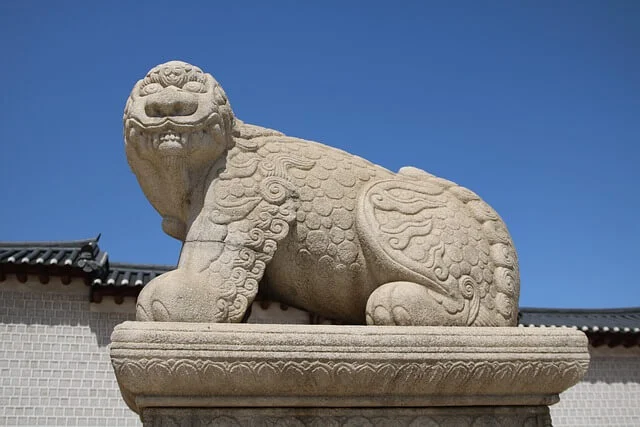🎭 Understanding Korean Satire and Humor – Advanced Level (TOPIK 5–6)

Satire and humor are an essential part of Korean language and culture. From political cartoons and variety shows to online slang and memes, understanding Korean humor requires not only linguistic skill but also cultural awareness. This post will guide you through key expressions, cultural references, and examples of Korean satire.
🌀 What is Korean Satire?
Korean satire often takes the form of exaggeration (과장), irony (반어), and wordplay (말장난). It can appear in entertainment shows like Gag Concert, in YouTube skits, or even in political commentary. A common theme is the criticism of social inequality, bureaucracy, or hypocrisy.
🗣️ Sample Satirical Sentences
“아무 일도 하지 않는 게 요즘 공무원의 미덕이래요.”
→ “Apparently, doing nothing is now considered a virtue for public officials.”
- 미덕: virtue
- 아무 일도 하지 않다: doing nothing – an ironic jab at inefficiency
“저는 월급 루팡이에요.”
→ “I’m a salary thief.” (A humorous self-deprecating term for someone doing little work at their job)
- 월급 루팡: a person who earns a salary without contributing much (from ‘Lupin’, the thief character)
📺 Where You’ll See Korean Humor
- TV Shows: Gag Concert, SNL Korea, Infinity Challenge
- YouTube: Dingo, STUDIO WAFFLE, 피식대학
- Online Slang: “현타 왔다”, “갑분싸”, “TMI”, “사바사”
- Webtoons: Maeum-ui Sori, Gaeko’s World
📚 Useful Satirical Vocabulary
| Korean | English |
|---|---|
| 풍자 | satire |
| 과장 | exaggeration |
| 반어 | irony |
| 말장난 | wordplay |
| 유머 감각 | sense of humor |
🎙 Practice Dialogue (Advanced Level)
A: 요즘 뉴스 보면 코미디보다 더 웃겨요.
B: 진짜요. 풍자가 아니라 현실이라니 더 놀라워요.
A: 한국 정치인들 보고 있으면, 개그맨이 따로 없어요.
B: 그래서 다들 “현실이 풍자다”라고 하나 봐요.
Romanized:
A: Yojeum nyuseu bomyeon komidi boda deo utgyeoyo.
B: Jinjjayo. Pungjaga anira hyeonsirirani deo nollawoyo.
A: Hanguk jeongchinin-deul bogo isseumyeon, gaegeumaeni ttaro eopseoyo.
B: Geuraeseo dadeul “hyeonsiri pungjada”rago hana bwayo.
English:
A: Watching the news these days is funnier than comedy.
B: I know, right? It's shocking that it’s not satire but reality.
A: When I watch Korean politicians, they seem like comedians.
B: That’s why people say, “Reality is satire.”
💡 Did You Know?
According to the Korea Creative Content Agency (KOCCA), over 67% of South Koreans between the ages of 20–40 consume satire through YouTube or short-form videos weekly. This reflects a growing trend of using humor as a tool to cope with social pressure and stress. Popular creators often use wordplay and parody to comment on political issues without facing direct censorship.
💬 Practice with Me on italki!
Want to understand Korean humor like a native? Book an advanced-level session with me and learn to decode wordplay, sarcasm, and punchlines in Korean comedy! 👉 Book your session now
Understanding satire in Korean isn’t just about language—it’s about reading between the lines. Immerse yourself in TV shows, online humor, and real Korean culture to truly “get the joke.” Laughter is universal, but the way it’s expressed? That’s what makes language learning fun! 🎉
📥 Stay Connected!
🔖📨
🔔 Subscribe to the blog


